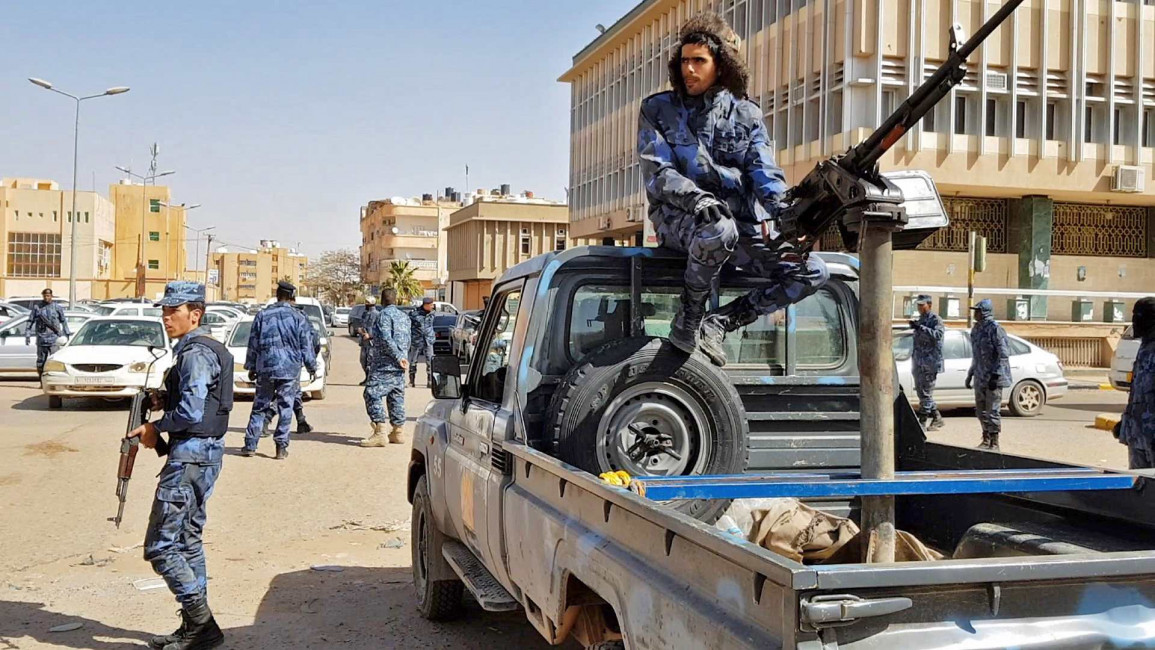Syria tribes condemn Russia for recruiting members for Libya's rogue General Haftar
The Syrian Ma'amara, Harb and Bani Saba clans, as well as the Sharabi in Hasaka and Qamishli, denounced Russia's Wagner military groups' efforts to deploy its own sons to Libya in support of Haftar, who has waged an insurgency against the internationally-recognised government in his bid to capture Tripoli.
The clans accused Wagner of applying pressure and financial incentives amid an ongoing deteriorating economic situation in Syria, including the reduction in value of agricultural crops, to force members of the clan into fighting for Haftar.
Moscow is a major backer of Haftar, who since April 2019 has attempted to seize control of Libya's capital, Tripoli, from government control.
The statements follow reports that a Russian officer is facing legal action for allegedly accepting bribes from fellow officers and soldiers to have them deployed to Syria, the Russian newspaper Kommersant reported last month.
Major Nikolai Zekin was commissioned by the Russian army leadership to select "trustworthy soldiers" to be sent to Syria.
Twitter Post
|
However, he is accused of turning the operation into a racket, charging senior officers 50,000 roubles ($700) and junior officers and soldiers 15,000 roubles ($212) for the privilege of being sent to Syria, where they can earn more lucrative salaries.
Another officer, Anton Danilovsky, was also allegedly involved in the bribery racket and had made 140,000 roubles ($2,000) as a result, while Zekin had earned 340,000 roubles ($4,800), Kommersant reported.
Danilovsky lost his rank as captain and was previously sentenced to 18 months in prison for accepting the bribes. Land belonging to him was also confiscated in lieu of the money he had made.
According to Kommersant, Russian soldiers in Syria are paid a salary of 200-300,000 roubles ($2,800-4,200) according to their rank. They can also make money in other ways and receive veteran status and other privileges.
Just days prior to the Kommersant report, the US Africa Command claimed Russian fighter aircraft were deployed to Libya to aid Moscow's mercenaries who are supporting rogue general Khalifa Haftar in the North Africa state.
Foreign involvement
With Russian and UAE backing, Haftar's LNA had until recently managed to gain a foothold in Libya's capital, however, pro-government forces in recent days have seized back control of several areas.
Turkey, which backs the GNA, has taken credit for the reversal, with Turkish Foreign Minister Mevlut Cavusoglu was saying that his country had "changed the balance" in Libya.
Read also: In Libya, Russia calls in its proxy, Assad
On Monday, a confidential UN report revealed that at least eight countries countries collaborated in a special mission, code named Project Opus, to block Turkish weapons shipments to Libya.
The 80-page report, relayed from the German Press Agency (dpa) by DW Turkish, said the operation was directed from the UAE, with involvement from citizens of Australia, France, Malta, South Africa, the UK and US.
The UAE has itself been accused of sending arms to Libya, including sophisticated Israeli air defence systems to counter Turkish drones.
Follow us on Facebook, Twitter and Instagram to stay connected



